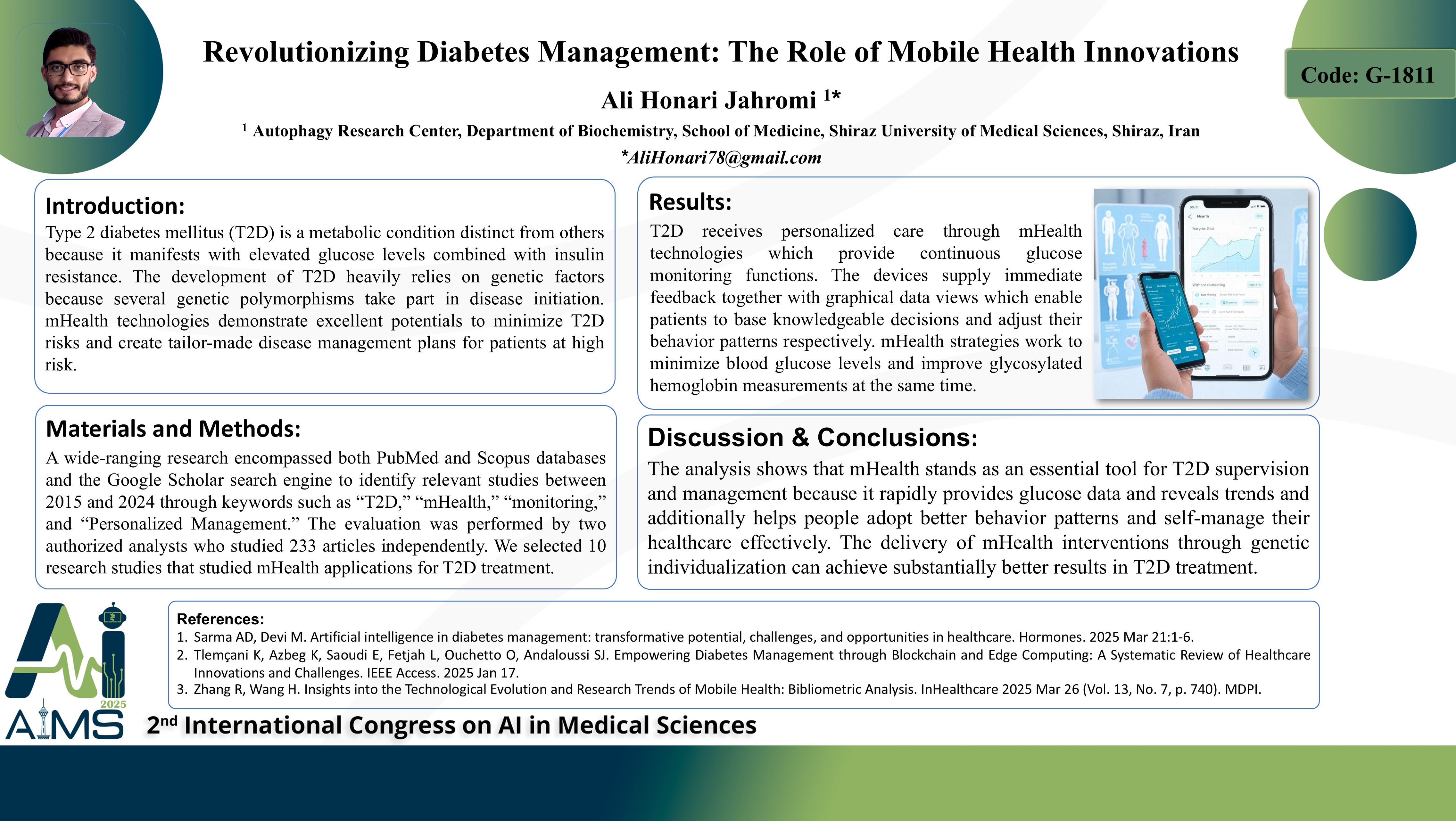انقلابی در مدیریت دیابت: نقش نوآوری های سلامت موبایل
کد: G-1811
نویسندگان: Ali Honari Jahromi * ℗
زمان بندی: زمان بندی نشده!
برچسب: سیستم های تصمیم یار بالینی
دانلود: دانلود پوستر
خلاصه مقاله:
خلاصه مقاله
Background and aims: Type 2 diabetes mellitus (T2D) is a metabolic condition distinct from others because it manifests with elevated glucose levels combined with insulin resistance. The development of T2D heavily relies on genetic factors because several genetic polymorphisms take part in disease initiation. The comprehension of this condition proves essential to create new methods that help detect and treat diabetes. mHealth technologies demonstrate excellent potentials to minimize T2D risks and create tailor-made disease management plans for patients at high risk. Method: The research evaluates the vital role which mobile health technology plays in Type 2 Diabetes management. A wide-ranging research encompassed both PubMed and Scopus databases and the Google Scholar search engine to identify relevant studies between 2015 and 2024 through keywords such as “T2D,” “mHealth,” “monitoring,” and “Personalized Management.” The evaluation was performed by two authorized analysts who studied 233 articles independently. We selected 10 research studies that studied mHealth applications for T2D treatment and included quantitative results and peer-reviewed publication. Results: Type 2 Diabetes (T2D) receives personalized care through mobile health (mHealth) technologies which provide continuous glucose monitoring functions. The devices supply immediate feedback together with graphical data views which enable patients to base knowledgeable decisions and adjust their behavior patterns respectively. mHealth strategies work to minimize blood glucose levels and improve glycosylated hemoglobin measurements at the same time. Through their implementation these systems help patients improve their self-regulatory abilities and cut down on unexpected health visits while enhancing their lifestyle patterns and resulting clinical measurements. Conclusion: The analysis shows that mobile health (mHealth) stands as an essential tool for Type 2 Diabetes (T2D) supervision and management because it rapidly provides glucose data and reveals trends and additionally helps people adopt better behavior patterns and self-manage their healthcare effectively. The delivery of mHealth interventions through genetic individualization can achieve substantially better results in T2D treatment.
کلمات کلیدی
Type 2 Diabetes, mHealth, Monitoring, Genetics
